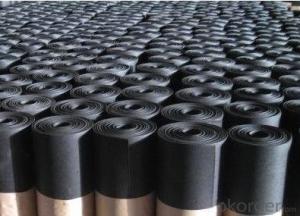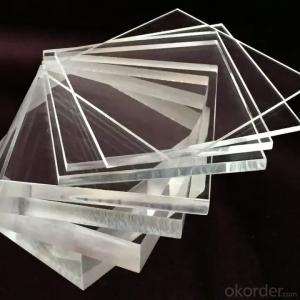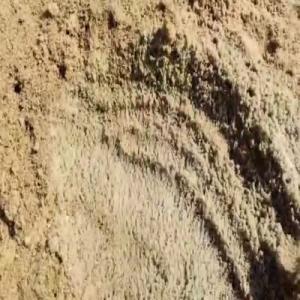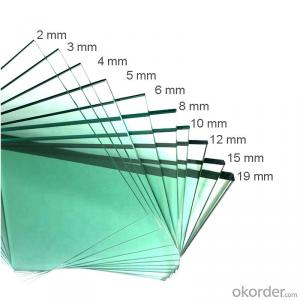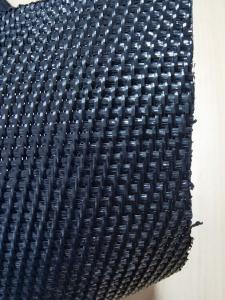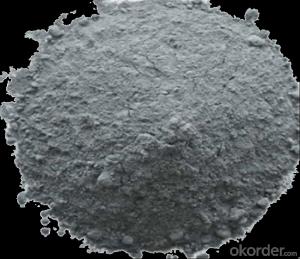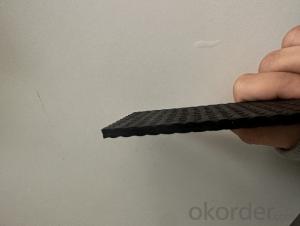EPDM Waterproof Membrane for Roofing Industry
- Loading Port:
- Qingdao
- Payment Terms:
- TT or LC
- Min Order Qty:
- 20000 m²
- Supply Capability:
- 600000 m²/month
OKorder Service Pledge
OKorder Financial Service
You Might Also Like
Product Description of EPDM Waterproof Membrane for Roofing Industry
1.EPDM Waterproof Membrane / Roofing Material / Sheets Roofing
2.High tensile strength.
3.Good elongation.
4.UV resistant.
5.Anti-corrosion.
Product instruction of EPDM Waterproof Membrane for Roofing Industry
EPDM waterproof membrane is made from ternary ethylene-propylene rubber. With the best performance among high polymer waterproof materials, EPDM is of exceptional elasticity and will not split or crack under normal building movement.
Features of EPDM Waterproof Membrane for Roofing Industry
1) Excellent weather-ability, durability and size stability
2) Good adaptability to high and low temperature, UV resistant and anti-corrosion
3) High tensile strength and good elongation, accommodating to structure movement
4) Easy installation, solid joint, and no environmental pollution
5) Good rooting penetration resistance
6) Service life up to 50 years
Application of EPDM Waterproof Membrane for Roofing Industry
1) Roofs, Basement, Toilet
2) Industrial and civil building waterproofing
3) Geo-synthetic liner for swimming pool, channels, irrigation system
4) Especially suit for projects with high requirements in durability, anti-corrosion and deformation
Technical Parameters of EPDM Waterproof Membrane for Roofing Industry
EPDM Waterproof Membrane ASTM Standard : D-7465 | ||||
Property | Test Method | Units | Mininum ASTM | |
D-7465 | ||||
Sl | Eng | |||
Specific Gravity | ASTM D-792 | gm/cc | 1.1 | 1.1 |
Unit Weight | ASTM D-751 | kg/m2 | 1.3 | 0.27 |
Thickness Type 1 | ASTM D-412 | mm(in) | 1.02 | 0.04 |
Tensile Strength. Die C | ASTM D-412 | Mpa(psi) | 9 | 1305 |
Ultimate Elongation,Die C | ASTM D-412 | % | 300 | 300 |
Tear Resistance,Die C | ASTM D-624 | Kn/m(lbf/in) | 26.27 | 150 |
Puncture Resistance | ASTM D-4833 | N(lbs) | 133 | 30 |
Shore A Durometer | ASTM D-2240 | 65-10 | 65-10 | |
Ozone Resistance | ASTM D-1149 | No Crack | No Crack | |
Multiaxial Elongation | ASTM D-5617 | % | 100 | 100 |
Heat Aging 28 days at 240 degrees | ASTM D-573 | |||
Tensile Strength, Die C | ASTM D-412 | MPa(psi) | 8.3 | 1205 |
Ultimate elongation, Die C | ASTM D-412 | % | 200 | 200 |
Tear Resistance, Die C | ASTM-624 | Kn/m(lbf/in) | 21.9 | 125 |
Accelerated Aging Xenon Arc | ASTM G-155/G-151 | Pass | Pass | |
Brittleness Point | ASTM D-2137 | -45 °C | -49 °C F | |
Water Absorption | ASTM D-471 | % | +8,-2 | +8,-2 |
Water Vapor Permeability, max | ASTM E-96 | Permils | 2.0 | 2.0 |
Linear Dimensional Change,max | ASTM-D-1204 | % | +/-1.0 | +/-1.0 |
Chronic Toxicity Screening | EPA/600/4-89/001 | Method 1000.0 | Pass | Pass |
FAQ:
1. What are we supplying?
We are specialized in producing Colorful Asphalt Roof Shingle, SBS/APP modified bitumen waterproof membrane, Self adhesive bitumen waterproof membrane, PVC waterproofing membrane, EPDM rubber roofing membrane, Single Component Polyurethane Waterproof Coating, and Spray Polyurea Waterproof Coating
2. What is your main market?
Our EPDM Waterproof Membrane for Roofing Industry sells very well in USA, United Kingdom, Austrilia, Canada, Japan, Pakistan, etc.
3. What is your advantage for EPDM Waterproof Membrane for Roofing Industry ?
With the most advanced production line, our good quality is based on superior material imported from America.
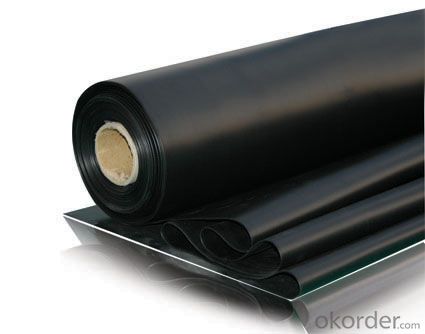
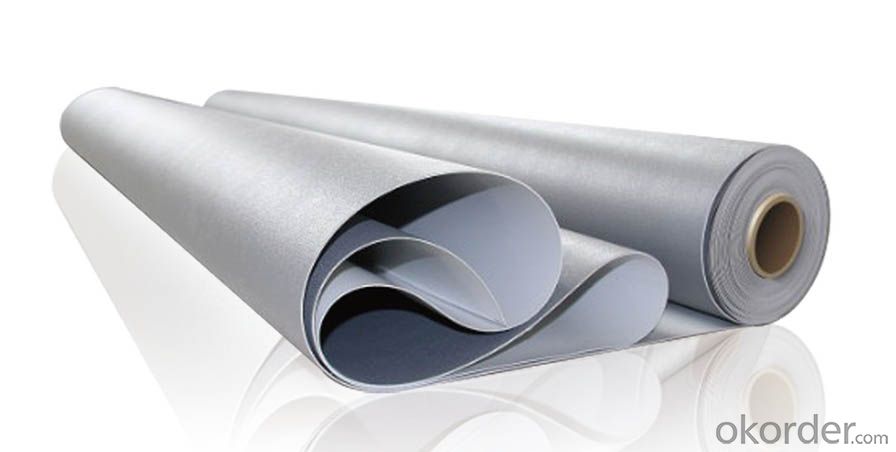
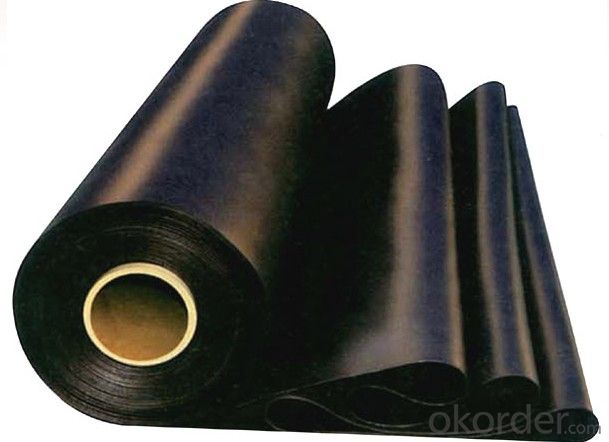
- Q:Can a waterproofing membrane be used for a foundation?
- Yes, a waterproofing membrane can be used for a foundation. Waterproofing membranes are designed to provide a barrier against water infiltration and can be used to protect the foundation from moisture damage. These membranes are typically made from materials such as bitumen, rubberized asphalt, or polymer-based sheets that are installed on the exterior side of the foundation walls. They are designed to prevent water from seeping into the foundation, which can help to prevent potential issues such as water damage, mold growth, and structural deterioration. It is important to ensure that the waterproofing membrane is properly installed and meets the specific requirements of the foundation to ensure its effectiveness.
- Q:Are waterproofing membranes resistant to sewage?
- Waterproofing membranes exhibit resistance towards sewage, as they are tailor-made and produced to serve as a shield against diverse liquids, including sewage. Crafted from robust materials, these membranes possess the capability to endure sewage exposure and prevent any leakage or seepage. By establishing a safeguarding layer, waterproofing membranes effectively ward off sewage intrusion and safeguard the integrity of the underlying structures. This resistance to sewage renders waterproofing membranes a highly efficient remedy for locales susceptible to sewage backup or elevated moisture levels, such as basements, bathrooms, and water treatment facilities.
- Q:Can a waterproofing membrane be used in high-rise buildings?
- Yes, a waterproofing membrane can be used in high-rise buildings. In fact, it is highly recommended to incorporate a waterproofing system in high-rise buildings to protect them from the damaging effects of water infiltration. Waterproofing membranes are designed to provide a barrier against water ingress, preventing leaks and moisture damage to the structure. They are commonly used on roofs, basements, foundations, and other areas that are exposed to water or moisture. The selection of the appropriate waterproofing membrane will depend on various factors such as the specific building design, construction materials, and environmental conditions. It is important to consult with experienced waterproofing professionals to determine the most suitable membrane system for a high-rise building to ensure long-term protection against water-related issues.
- Q:How does a waterproofing membrane adhere to a variety of surfaces?
- A waterproofing membrane adheres to a variety of surfaces by utilizing a strong adhesive backing or by being applied with a suitable adhesive. This allows it to bond effectively to different materials such as concrete, wood, metal, or even existing waterproofing layers. Additionally, some membranes may also have self-adhesive properties that eliminate the need for an external adhesive.
- Q:Does a waterproofing membrane require any special maintenance?
- Yes, a waterproofing membrane does require some special maintenance. It is important to regularly inspect the membrane for any damages or signs of wear and tear. Additionally, periodic cleaning and removal of debris is necessary to ensure its effectiveness. Proper drainage and regular resealing or reapplying of waterproofing coatings may also be needed to maintain the membrane's longevity and functionality.
- Q:Can a waterproofing membrane be customized or tailored to specific project requirements?
- Indeed, specific project requirements can be met through the customization or tailoring of a waterproofing membrane. There are various types and materials available, including bituminous, synthetic, and liquid-applied membranes. These membranes can be adjusted or modified to suit the particular needs of a project. Customization involves factors such as the thickness or weight of the membrane, the type of reinforcement utilized, the application method, and the project's specific performance requirements. For instance, heavy traffic areas may require a thicker or more durable membrane to withstand substantial loads, while projects in harsh climates may necessitate a membrane with enhanced resistance to UV radiation or extreme temperatures. Moreover, the membrane can be tailored to different substrates or surfaces, such as concrete, metal, or wood, by utilizing compatible adhesives or primers. This ensures proper bonding and extends the lifespan of the waterproofing system. Furthermore, certain waterproofing membranes offer customizable options for color or appearance, enabling them to seamlessly blend with the overall aesthetic of the project. In conclusion, the customization of a waterproofing membrane allows for its specific design and engineering to cater to the unique requirements of each project. This ensures optimal performance and long-lasting protection against water damage.
- Q:Can a waterproofing membrane be used on wood block surfaces?
- Certainly! Waterproofing membranes are a suitable option for safeguarding wood block surfaces. The utilization of a waterproofing membrane on wood block surfaces, like decks or wooden floors, can prove advantageous by shielding against water damage and prolonging the wood's lifespan. These membranes function as a barrier, effectively preventing water from infiltrating the wood and causing deterioration, such as rot, warping, or decay, over time. To guarantee optimal outcomes, it is crucial to select a waterproofing membrane explicitly designed for wood surfaces and adhere to the manufacturer's instructions for application. By doing so, the wood block surface can be adequately protected and maintained, ensuring its resilience and longevity.
- Q:Can a waterproofing membrane be used for bridge abutments?
- Yes, a waterproofing membrane can be used for bridge abutments. Waterproofing membranes are commonly used in construction to prevent water infiltration and protect structures from moisture damage. Bridge abutments, as critical components of bridge infrastructure, can benefit from the installation of a waterproofing membrane to ensure long-term durability and structural integrity.
- Q:Can waterproofing membranes be used on outdoor fountains?
- Indeed, outdoor fountains can benefit from the application of waterproofing membranes. The primary purpose of these membranes is to establish a protective shield that thwarts water infiltration, rendering them an excellent choice for safeguarding outdoor fountains against water-induced harm. Typically composed of water-resistant materials like rubber, PVC, or bitumen, these membranes effectively seal the fountain's structure. By applying a waterproofing membrane to an outdoor fountain, one can extend its longevity, avert leaks, and shield it from the elements.
- Q:Can a waterproofing membrane be used in fountains or water features?
- Yes, a waterproofing membrane can be used in fountains or water features. Waterproofing membranes are designed to protect surfaces from water penetration and are commonly used in various construction applications, including fountains and water features. These membranes create a barrier that prevents water from seeping into the underlying structure, ensuring the longevity and functionality of the fountain or water feature. Additionally, waterproofing membranes can be applied to different materials, such as concrete, stone, or metal, making them versatile for use in various designs and styles of fountains or water features.
1. Manufacturer Overview |
|
|---|---|
| Location | |
| Year Established | |
| Annual Output Value | |
| Main Markets | |
| Company Certifications | |
2. Manufacturer Certificates |
|
|---|---|
| a) Certification Name | |
| Range | |
| Reference | |
| Validity Period | |
3. Manufacturer Capability |
|
|---|---|
| a)Trade Capacity | |
| Nearest Port | |
| Export Percentage | |
| No.of Employees in Trade Department | |
| Language Spoken: | |
| b)Factory Information | |
| Factory Size: | |
| No. of Production Lines | |
| Contract Manufacturing | |
| Product Price Range | |
Send your message to us
EPDM Waterproof Membrane for Roofing Industry
- Loading Port:
- Qingdao
- Payment Terms:
- TT or LC
- Min Order Qty:
- 20000 m²
- Supply Capability:
- 600000 m²/month
OKorder Service Pledge
OKorder Financial Service
Similar products
New products
Hot products
Related keywords
